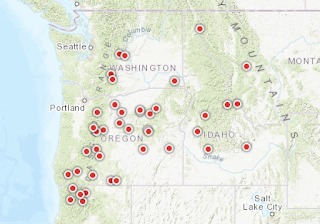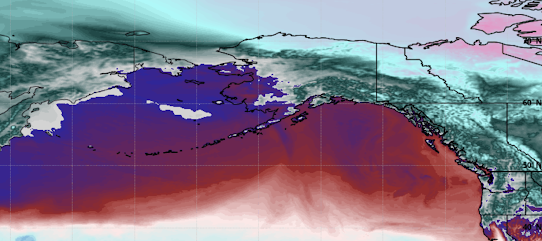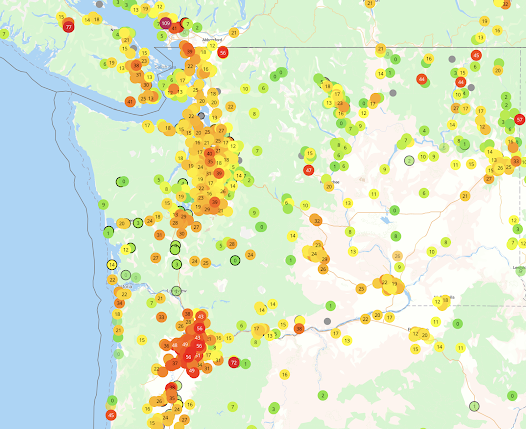The Coldest Mid-April Period in Northwest History
We are in the middle of one of the extreme cold periods in Northwest history.
Many locations are breaking daily and MONTHLY records for coldest maximum daily temperatures in April. And to drive the point home, snow showers were observed around Seattle (see a WSDOT image from Auburn this morning).
Let's consider two-day average temperatures for April. The last two days were the COLDEST at Seattle in April for the entire record (77 years).
Daily and monthly records are falling throughout the region. Consider Monday, April 11..
Daily records for the coldest high temperatures fell over the region (see below)
More impressively MONTHLY records also fell that day.
What about the low temperatures today?
Below freezing all over Washington and Oregon with teens in the mountains. This is April folks...we are experiencing late December temperatures.
Want temperatures even MORE extreme? The western slopes of the Rockies were in the single digits and even below zero this morning.

Incredibly, the daily high temperatures have barely risen to the normal low temperatures for this time of the year.
Even more impressive, the record cold we are experiencing now is nearly as unusual as the heatwave last June. But where are the attribution reports? The media stories about the record cold?
Want warmer temperatures? You might try Siberia! Believe it or not, it has been warmer in eastern Siberia than in portions of our region (see below, showing temperatures tomorrow mornng)
This cold spell is associated with an unusually deep trough of low pressure over our region. There is the result of natural variability--there is no reason to expect global warming/ climate change has anything to do with it.
As illustrated by a figure created by US EPA, cold waves are declining around the western U.S.--EXACTLY what you would expect with global warming.
_______________________
Reminder: I will do a special session for this blog/podcast's Patreon supporters on Saturday at 10 AM. Come with your questions....and I will talk more about the cold wave.













Comments
Post a Comment